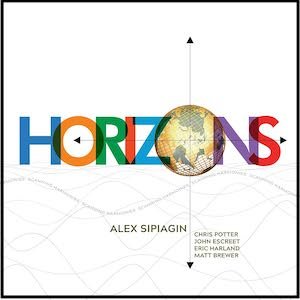Label: Tao Forms, 2024
Personnel - Jason Stein: bass clarinet; Joshua Abrams: bass; Gerald Cleaver: drums; Boon: guitar (#1,7)
After a six-year hiatus, Chicago-based bass clarinetist Jason Stein makes a compelling return with Anchors, an album that is consistently intriguing, surprising, and invigorating. Inspired by the disciplines and practices that helped him overcome a creep-threatening injury, Stein demonstrates technical mastery and profound sonority throughout the record’s narrative arc. He is joined here by bassist Joshua Abrams and drummer Gerald Cleaver, who provide a cohesive yet adaptable foundation.
The album is bookended by the piece “Anchor”, a delicate rubato duet revolving around a particular melody that serves as a meditation on stillness and motion. Written by the guitarist and co-producer Boon, it serves as a gentle entry point into the album's explorations. The following track, aptly titled “Boon”, unfolds as a loose avant-garde rumination that is both uncompromising and erratic, without ever feeling sinister. The co-composed “Crystalline” uses stagnation and fragility as launching points, with Stein offering temperate phrases and circular breathing techniques in a nuanced arrangement of notes. Abrams transitions from bowed bass to sparse pizzicato, while Cleaver shifts from pulsing cymbal glee to tom-tom commotion, culminating in a beautiful finish.
With freedom and focus as key elements, the trio shapes “An Origin” with deep, repetitive droning sounds of bass and bass clarinet. Abrams and Stein explore the lower reaches of their instruments over Cleaver’s shuffling, dynamic drumwork, evoking ambiguous black-and-white images in a monochromatic reference to suffering and chronic pain. As the track progresses, groove and color are gradually infused, with Abrams’ bass serving as the gravitational center while guiding us through a polished harmonic progression.
“Holding Breath”, inspired by a technique Stein used for physical and mental benefit, is the album’s longest track at 12 minutes. It begins with air sounds, raspy bass tones, and rattling percussive, evolving from a suspended mode into a bluesy 4/4 modal structure. As the track swings fluidly, Stein’s elaborately articulated language invites the listener to hang in there. In stark contrast, “Cold Water” is a scorching free improvisation that leaves the listener breathless, only to bring a clear melody into focus by the end.
Anchors is a first-rate musical experience that encourages listeners to revel in Stein's sinuous, addictive narratives and vivid expressions of life experiences.
Favorite Tracks:
03 - Crystalline ► 05 - An Origin ► 06 - Holding Breath








































